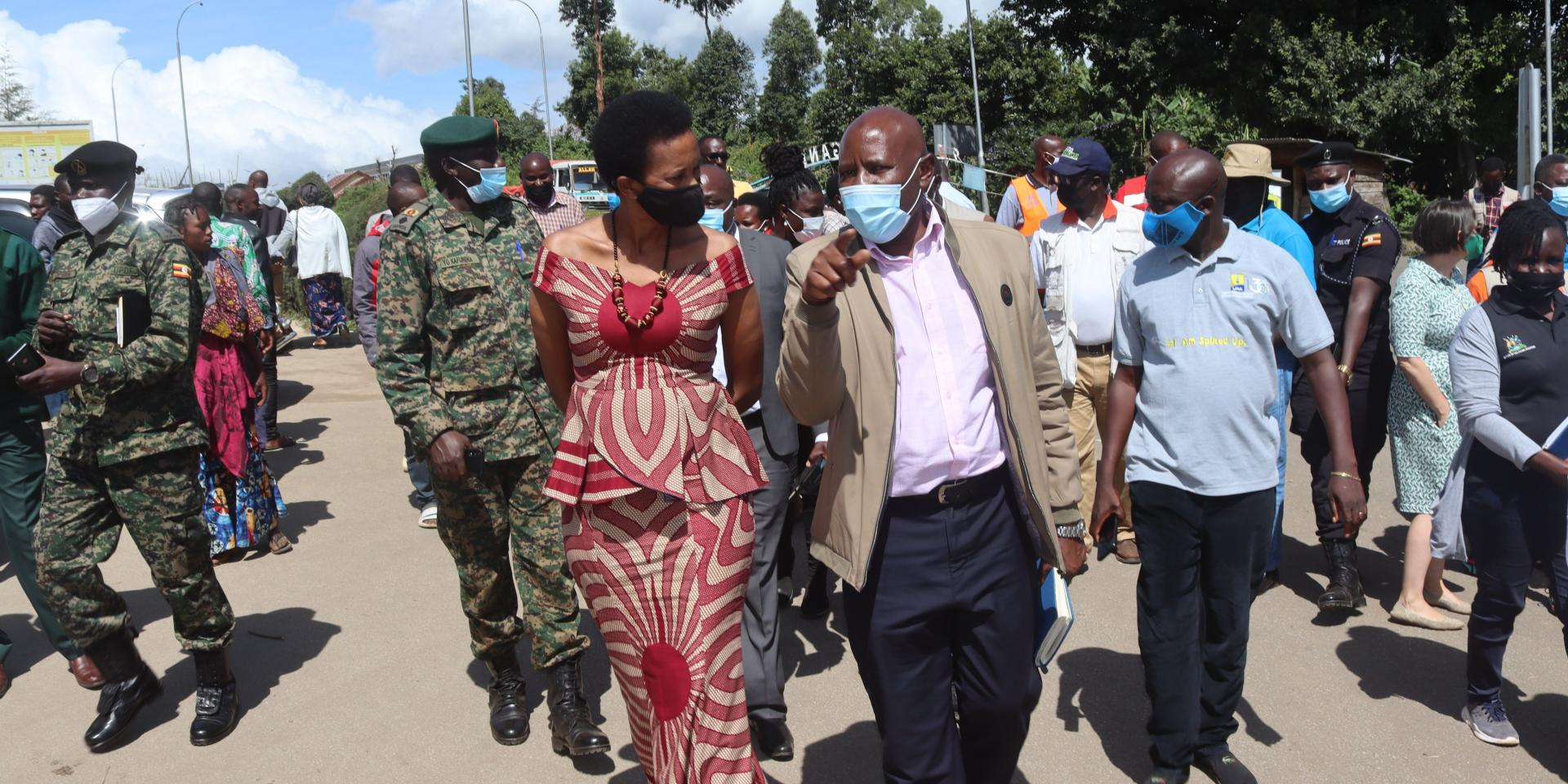Refugees in Uganda based at the Nakivale refugee settlement camp in Isingiro district are grappling with a rise in malnutrition and chronic anaemia.
A survey by Medical Teams International says the cases of acute Malnutrition have increased from 1.8% in 2019 to 2.8% and 5.7% in 2020 and 2021 respectively and acute anaemia is up to 40% which is above the World health standard. In December 2020, the World Food Program (WFP) reduced the monthly relief food rations for 1.26 million refugees in Uganda by 40% due to a funding shortfall.
Dr Justine Okello, the health and nutrition program manager for Medical Teams International in south-western Uganda says the increase in malnourished cases among refugees is due to a decrease in food rations by 40% which happened in 2020.
Okello says the last three tests done between January and April presented acute Malnutrition mostly in children under 15 years of age and expectant mothers.
He says the malnutrition challenges in the camp have surpassed the Global Acute malnutrition level that has also led to an increase in acute anaemia, which has shot up from 20percent to 40percent above the world health standard.
Okello says that most refugees are living with low red blood cells as a result of deficiency of micronutrients like Folic acid and iron making them Vulnerable to diseases since their bodies have lost resistance.
Mark Mutawe, the Nakivale Refugee settlement commandant attributes the increased malnutrition situation to an increase in the population in the camp from the new arrivals, mostly Congolese nationals who come in when they are already malnourished.
The Nakivale settlement camp has received about 2000 refugees. Of these 1200 have been settled and another 1000 are at Kabazana reception centre waiting for food ratios before they are settled. The relocation of refugees to Nakivale Refugee Settlement Camp in Isingiro District has been delayed by the lack of funds. The camp currently has a total of 142,000 refugees.
The government and the United Nations High Commission for Refugees-UNHCR have since Monday been relocating refugees from the Nyakabande Refugee reception center in Kisoro district who were displaced by fighting between the M23 rebels and DRC soldiers.
The UNHCR Country Representative Joel Boutre says they are facing a challenge to attend to the current refugee emergencies in Uganda since the funding from the donor community is less than the needed $40 million. He says some of the challenges faced include the reduction of food, and insufficient services for Education, Water, and Health.
During a tour of Nakivale Refugee Settlement by officials from the European Union, USAID, and the State Minister of Refugee and Disaster Preparedness Esther Anyakun said that despite relocating the first batch of refugees, the Nyakabande reception center is overwhelmed since they receive refugees on a daily basis.
She said the government is advocating for more funding and fulfilling her pledge since the services needed like water and health are also under heavy pressure.
Besides malnutrition, refugee settlements in Uganda are also grappling with poor hygiene conditions due to an influx of refugees. Nyakabande refugees transit centre in Kisoro district, is now home to 17,717 Congolese refugees at the Nyakabande transit center who fled heavy fighting between M23 rebels and Armed Forces of the Democratic Republic of Congo (FARDC) on March 28 in Rutshuru territory, North Kivu province, eastern Democratic Republic of Congo (DRC.
Humanitarian agencies say that they are facing hurdles to maintain hygiene at Nyakabande refugees transit center due to limited sanitary facilities. The agencies are currently forced to empty the only two toilets at the center twice per week, which costs them huge sums of money.
Jackeline Kitentera, the Emergency Coordinator of Care and Assistance for Forced Immigrants at Nyakabande transit center says that they empty 460 cubic metres of faecal matter from the toilets on a monthly basis.
According to Kitentera, they spend about Shillings 40 million monthly to empty the toilets. She says that the situation is worsened due to the lack of a cesspool emptier in the entire Kisoro district, which forces them to hire one from Kabale, about 73kilometers away.
Abel Bizimana, Kisoro District LC V Chairman, says that due to the high number of refugees, many of them have to use toilets in the neighbouring trading centre of Nyakabande.
Hajji Shefiques Ssekandi Ssengoba, the Kisoro Resident District Commissioner, says that they are aware of the problem. Ssekandi says that a similar problem is in Bunagana town council where refugees left most of the toilets full. He says that efforts are being done by the government to avail more facilities.
Last week the UNHCR spokesperson Boris Cheshirkov during a press briefing in Geneva said that the UN Refugee Agency and 44 humanitarian partners are urgently appealing for US$47.8 million to respond to the critical needs of thousands of refugees who arrived in Uganda this year, fleeing violence in the Democratic Republic of the Congo (DRC) and sporadic clashes in South Sudan.



